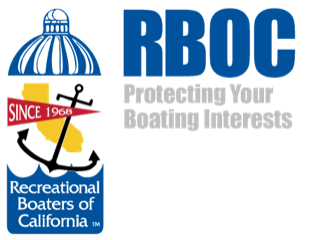SB 1066 [Blakespear] would establish an extended producer responsibility requirement for marine flares.
RBOC appreciates the conversations we have had to-date with Senator Blakespear and the proponents regarding the provisions and objectives of SB 1066 that would establish an extended producer responsibility requirement for marine flares.
The recreational boating community has been engaged in the state’s efforts to facilitate and encourage boaters to voluntarily turn in their marine flares through the past several years with the California Boating Clean and Green Campaign that receives the financial support of boater fees and taxes.
With SB 1066 scheduled to be heard in the Senate Committee on Environmental Quality on April 3, RBOC has re-confirmed the issues we have identified and their status with the author and committee:
That the bill not propose a ban marine flares.
RBOC appreciates that the legislation does not propose a ban and that there is no plan to do so.
That there be an effort to work as collaboratively as possible with the marine flare manufacturers.
It is our understanding that a dialogue has recently occurred, but that so far, that there is no collaboration at this time, and that the leading marine flare manufacturer is opposed to the measure.
That there be a recognition that marine flares are a mandatory and essential public safety feature.
Visual distress signals are an essential part of the safety equipment of a recreational vessel and are required by federal regulations.
SB 1066 does not recognize the essential safety function of marine flares. To the contrary, proposed Health and Safety Code Section 25000 states that the purpose of the Marine Flare Producer Responsibility Act of 2024 “is to provide for the safe and proper management of pyrotechnic marine flares, which pose significant threats to health and safety and may cause significant and costly damage to the environment when managed improperly.”
That there be an acknowledgement that alternatives are not effective during daytime hours.
The reason flares are mandatory is that they may be the only way for a boater whose craft is disabled to be found by a rescue attempt. This is a health and safety issue itself. If a mayday call is made, the rescuer still must locate the craft; and often that search and rescue operation takes place over large fields of open water in the dark. Many of today's electronic beacons are barely visible in those conditions.
The legislation is likely to cause boaters to turn to electronic alternatives due to the significant cost increases for traditional flares, even when they are ineffective. The legislation does not address this issue.
That the provisions avoid a significant cost impact on individual boaters that could become a disincentive to purchases.
The legislation is more than likely to significantly increase the price recreational boaters pay for marine flares:
SB 1066 places a financial burden on marine flare producers to create a producer responsibility organization, as well as develop and implement plans for the collection, transportation, and the safe and proper management of the flares including the acceptance and management of all flares at the end of their useful life. We'd like to know more about those costs, but at this stage, it appears that burden might drive effective night flares completely out of the market.
Significant funding will also be required for the Department of Toxic Substances Control’s actual and reasonable regulatory costs, which include full personnel costs, the actual regulatory development costs and other startup costs incurred prior to plan submittal and approval.
The absence of a robust, competitive business environment is likely to lead to the new costs imposed by SB 1066 being borne by the recreational boaters.
For these reasons, RBOC has adopted an opposition position on the current version of SB 1066. We will remain engaged and look forward to additional discussions.

